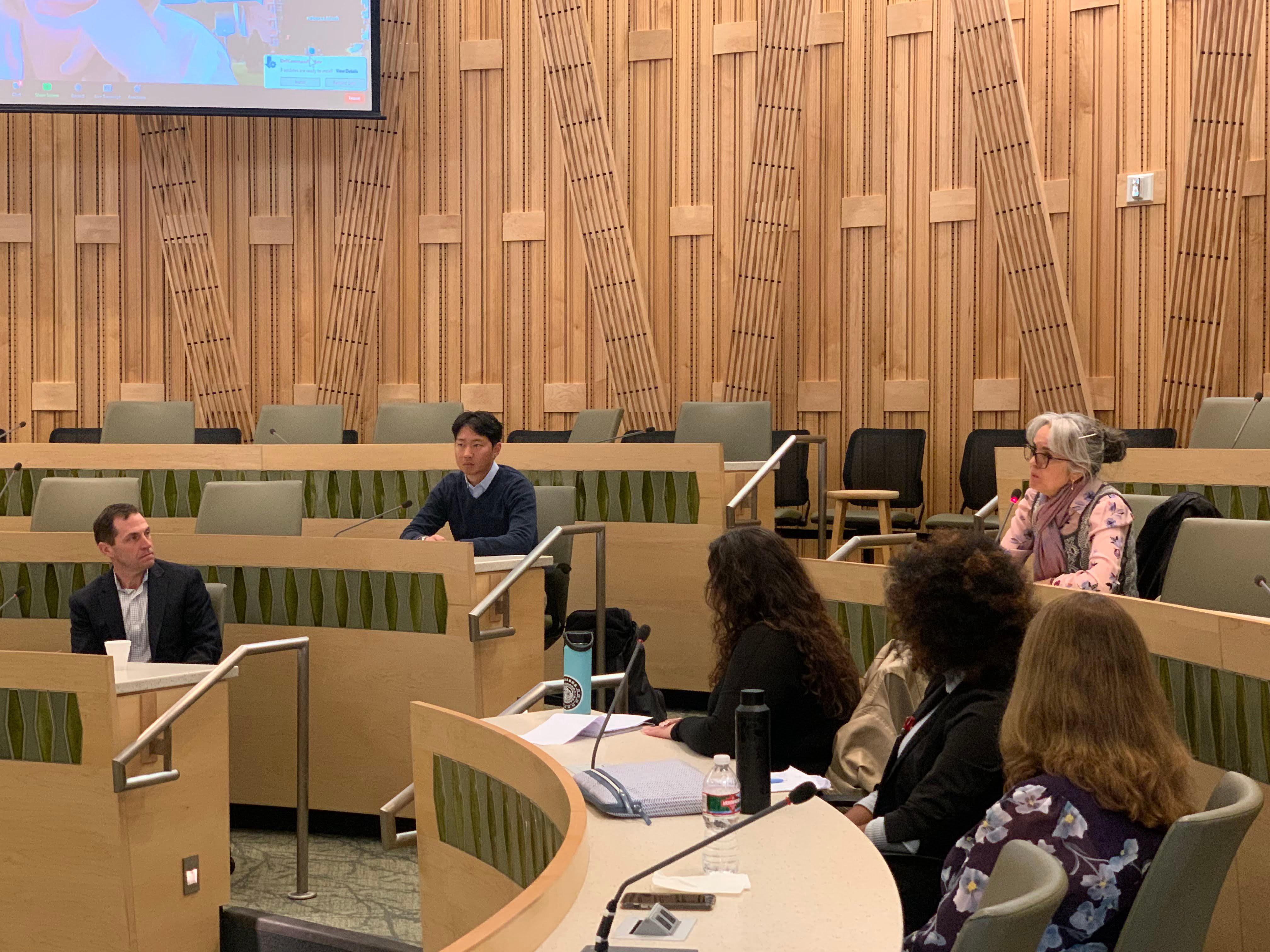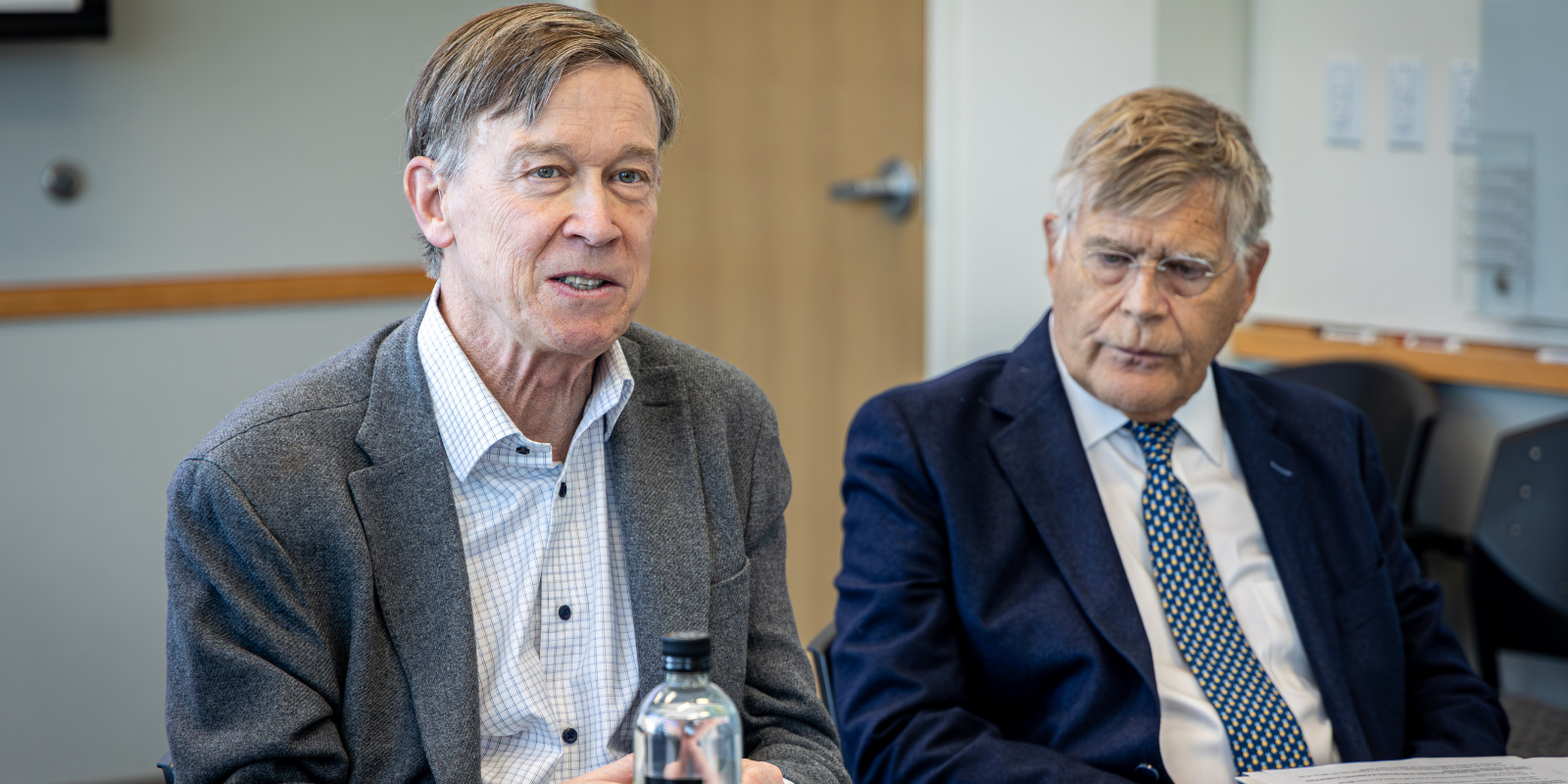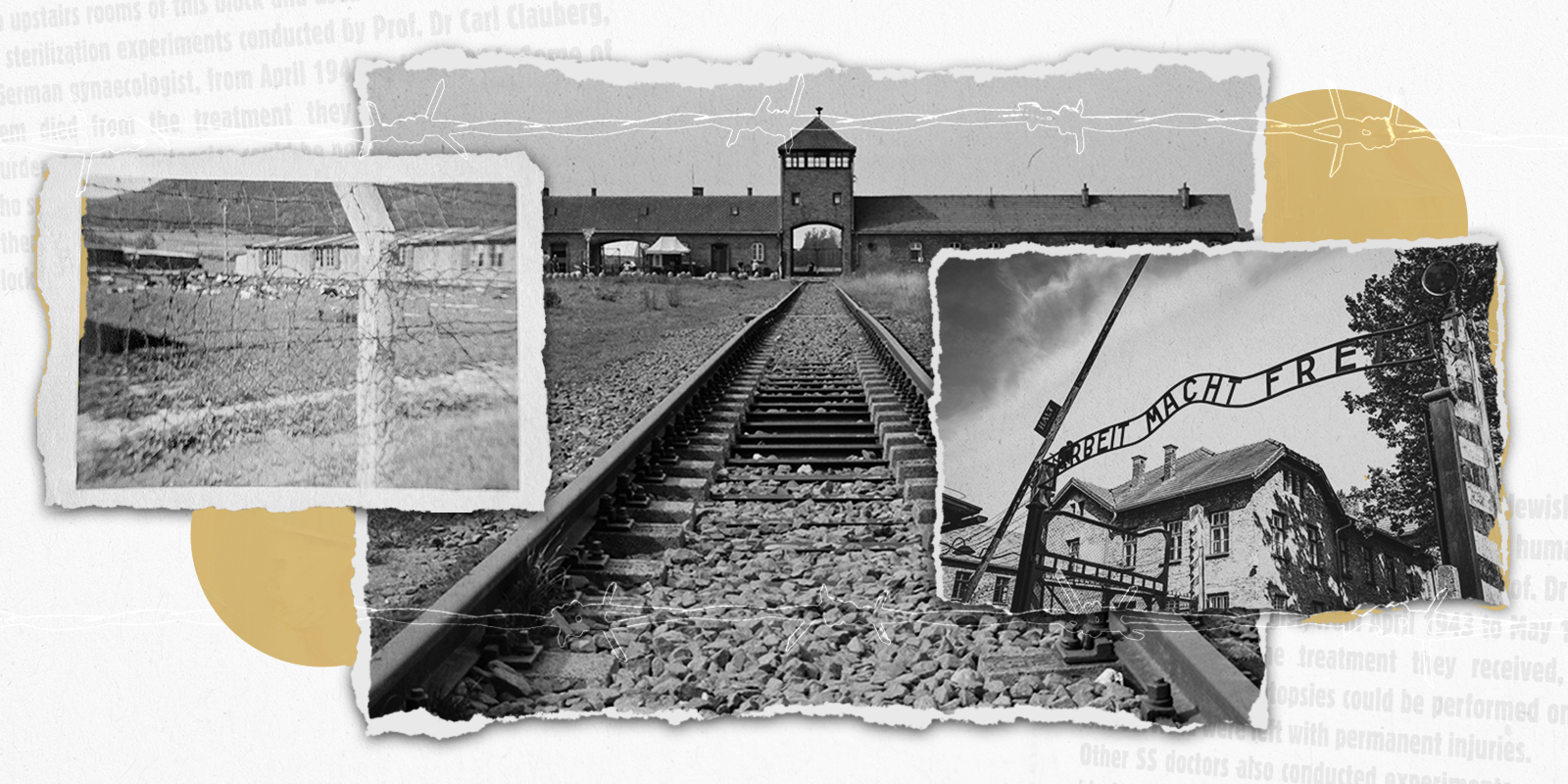The University of Colorado Anschutz Medical Campus will soon expand its career pathway opportunities for students thanks to new federal funding.
Led by U.S. Rep. Jason Crow (D-Colo.) and Sens. John Hickenlooper and Michael Bennet, CU Anschutz will receive $1 million in community project funding for career pathway programs following the passage of the FY 2022 federal omnibus appropriations bill.
The funding comes at a critical time to address disparities in education access – which have grown during the COVID-19 pandemic – by expanding support for the more than 30 career pathway programs at CU Anschutz for underrepresented minorities, first-generation, economically disadvantaged and differently-abled students in K-12 and undergraduate programs.
Making lasting, transformational change
On March 23, Crow visited CU Anschutz for a discussion on the future of pathway programs. The meeting was led by Regina Richards, PhD, MSW, vice chancellor of Diversity, Equity, Inclusion and Community Engagement, and included campus, university and community leaders.
 U.S. Rep. Jason Crow, far left, speaks with campus and community leaders in Gossard Forum on March 23. U.S. Rep. Jason Crow, far left, speaks with campus and community leaders in Gossard Forum on March 23. |
Also attending were CU Anschutz Chancellor Don Elliman, CU Regent Illana Dubin Spiegel, Executive Vice Chancellor for Administration and Finance Terri Carrothers, as well as several program leaders who all provided Crow with updates on the work being planned with new funding across several career pathway programs at CU Anschutz.
A key topic was how disparities in access to pathway programs were exacerbated during the pandemic, disproportionately felt in underrepresented communities both in Colorado and nationally.
Several program leaders said the new funding will help to not only expand career pathways in the health sciences for students from underrepresented communities in Aurora and across Colorado, but also address the long-term goal of ensuring communities of color are not deprived of culturally competent care – which has been demonstrated to improve health outcomes.
Focused on the long term
Those in attendance also recognized how building career pathway programs have been focused on “longitudinal” solutions for students ranging from K-12 to the undergraduate level.
Crow said the funding was “the result of years of listening tours in the community,” and Richards underscored the university’s commitment to “strategic, systemic and sustainable” pathway programs work. Attendees were excited at the prospect of scaling these programs, given their strong record of success.
Dominic Martinez, EdD, assistant vice chancellor for the Office of Inclusion and Outreach, pointed to the success seen in CU Anschutz pathway programs:
- 87% of students that started in a program matriculated into the health sciences.
- The over 30 programs provide STEM and health experiences to 1,500 students per year, 80% of whom are from underrepresented populations, including about 150 students per year who are engaged in the most intensive, year-long programs.
Sonia Flores, PhD, vice chair for diversity and justice at the University of Colorado School of Medicine’s Department of Medicine, said a big reason for the success is the visibility and mentorship provided – underrepresented students seeing themselves reflected in those working and studying in the health sciences.
Martinez said the programs open students to a world of career possibilities in the health sciences, as many have only thought of doctor or nursing as career options.
Richards thanked Crow and Colorado’s senators for taking on the disparities in health science education. "Initiating these pathways for underserved student populations is essential for the future of healthcare in our communities, ensuring that our diversifying city receives care from providers who look like them and understand what they're going through,” she said. “We applaud Congressman Crow and Senators Hickenlooper and Bennet for taking the first steps to make this possible."



